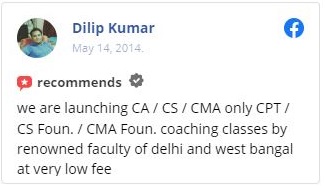LLM Admission Open
LLM (Master of Laws) Admission from Top Universities: LLM Admission Process, LLM Eligibility Criteria, LLM Fees, LLM Duration, LLM Syllabus, LLM Scope, and LLM Career Opportunities
LLM (Master of Laws) Admission: Overview
Introduction: The Master of Laws (LLM) is a highly regarded postgraduate degree that allows legal professionals to enhance their expertise in specific areas of law. With the rise in demand for specialized legal knowledge, LLM admission has become increasingly competitive, especially at top universities.
Admission Requirements: To apply for an LLM, candidates usually need to possess a first degree in law (LLB) or an equivalent qualification. Proficiency in English is essential, particularly for non-native speakers, who must submit scores from tests like IELTS or TOEFL. Additionally, applicants are often required to submit letters of recommendation, a statement of purpose outlining their motivations and goals, and a detailed CV showcasing their academic and professional background.
Application Process: The application process involves several key steps. First, candidates should research various LLM programs offered by top universities to find one that aligns with their interests. After preparing the necessary documents, they can submit their applications online before the specified deadlines. Some institutions may also require interviews as part of their selection process.
Funding and Scholarships: Many students look for scholarships to help fund their LLM studies. Various universities offer financial aid options, and there are also government-funded programs and private organizations that provide grants to eligible candidates.
Career Opportunities: An LLM can significantly enhance career opportunities in the legal field. Graduates may pursue roles in specialized legal practice, academia, or governmental organizations. The degree is particularly valuable for those looking to work with international organizations or NGOs, focusing on areas like human rights law and corporate law.
LLM (Master of Laws) Eligibility Criteria
A Master of Laws (LLM) is a significant step for legal professionals aiming to enhance their expertise. Below are the typical eligibility criteria for admission to LLM programs:
1. Academic Qualifications
- Candidates must hold a first degree in law (LLB) or an equivalent qualification from a recognized institution. Some universities may also accept applicants with degrees in related fields, provided they have relevant legal experience.
2. Minimum Grade Requirement
- Many top universities require a minimum grade point average (GPA) or equivalent marks in the undergraduate degree. This standard varies by institution but often falls within the range of 55% to 65%.
3. English Language Proficiency
- For non-native English speakers, proficiency in the English language is crucial. Institutions typically accept scores from standardized tests such as IELTS (usually a minimum score of 6.5) or TOEFL (typically a minimum score of 80).
4. Letters of Recommendation
- Applicants are usually required to submit two or three letters of recommendation from academic or professional references who can attest to their qualifications and potential for success in an LLM program.
5. Statement of Purpose
- A well-crafted statement of purpose is essential, outlining the candidate’s motivation for pursuing an LLM, their career goals, and why they have chosen that specific program.
6. Work Experience (if applicable)
- While not always mandatory, relevant work experience in the legal field can enhance an application, especially for programs that focus on specialized areas of law.
7. Interview (if required)
- Some universities may conduct interviews as part of the admission process to assess the applicant’s suitability for the program.
Conclusion
Understanding the eligibility criteria is crucial for prospective students considering an LLM. Meeting these requirements will strengthen your application and increase your chances of securing a spot in a prestigious program.
LLM (Master of Laws) Admission Process
The admission process for a Master of Laws (LLM) program can vary by university, but it generally follows a similar structure.
1. Research Programs
- Begin by researching various LLM programs offered by different universities. Consider factors such as specializations, faculty, reputation, and location. Make a list of programs that align with your career goals.
2. Check Eligibility Criteria
- Review the eligibility requirements for each program. Ensure you meet the academic qualifications, English proficiency standards, and any additional criteria.
3. Prepare Required Documents
- Academic transcripts from previous degrees
- Letters of recommendation (usually 2-3)
- A well-written statement of purpose
- A detailed CV or resume
- English proficiency test scores (if applicable)
4. Complete the Application Form
- Most universities have an online application portal. Fill out the application form carefully, providing all required information. Be sure to proofread for any errors.
5. Submit Application Fees
- Many universities require a non-refundable application fee. Check the payment methods and submit the fee along with your application.
6. Submit Your Application
- Once you have completed the application form and gathered all required documents, submit your application before the deadline. Pay attention to the specific deadlines for each university.
7. Prepare for Interviews (if required)
- Some universities may conduct interviews as part of the selection process. Prepare by reviewing your application and being ready to discuss your motivations and career aspirations.
8. Acceptance and Enrollment
- If accepted, you will receive an official offer letter. Follow the instructions provided to confirm your acceptance, which may include paying a deposit to secure your spot.
9. Prepare for Your Studies
- Once enrolled, start preparing for your LLM journey. This may include arranging accommodation, familiarizing yourself with the curriculum, and connecting with fellow students.
LLM (Master of Laws): Curriculum
SEMESTER 1
| SUBJECT | MARKS |
| Constitutional Law of India | 100 |
| Administrative Law | 100 |
| Jurisprudence | 100 |
| Transparency Law | 100 |
SEMESTER 2
| SUBJECT | MARKS |
Interpretation of Statutes and Principles of Legislation
| 100 |
| Research Methodology | 100 |
| Environmental Law | 100 |
Law & Social Transformation | 100 |
Group A: Constitutional Law.
SEMESTER 3
| SUBJECTS | MARKS |
| British Constitutional Law | 100 |
| American Constitutional Law | 100 |
| Dissertation | 100 |
| Local Self-Government OR Federal Governance | 100 |
| Open Elective | 100 |
Semester 4
| SUBJECT | MARKS |
Comparative Federalism (India, Australia, Canada & Switzerland)
| 100 |
| Mass Media Law | 100 |
| Election Law | 100 |
| Human Rights | 100 |
Group-B: Business Law
SEMESTER 3
| SUBJECT | MARKS |
| Law of Contracts in India & England | 100 |
| Law of Corporate Management & Partnership | 100 |
| Dissertation | 100 |
Law of Export-Import Regulations | 100 |
| Open Elective | 100 |
SEMESTER 4
| SUBJECT | MARKS |
| Law of Corporate Finance & the S.E.B.I. Act 1992 | 100 |
| Law of Negotiable Instruments, Banking & Insurance | 100 |
| Industrial and Intellectual Property Law | 100 |
International Trade Law OR International Disputes Settlement. | 100 |
Group-C: Personal Law
SEMESTER 3
| SUBJECT | MARKS |
| Hindu Law (excluding Hindu Law of Succession Trusts & Endowments) | 100 |
| Muslim Law (excluding Muslim Law of inheritance wakfs and endowments) | 100 |
| Dissertation | 100 |
Development of Hindu Jurisprudence | 100 |
| Open Elective | 100 |
SEMESTER 4
| SUBJECT | MARKS |
| Indian Law of Testamentary & Intestate | 100 |
| Religious Trusts & Endowments: Central & State Legislation | 100 |
| Population Planning and Gender Justice | 100 |
Criminal justice system under personal laws.
| 100 |
Group-D: Criminal Law
SEMESTER 3
| SUBJECT | MARKS |
| History and Principles of Criminal Law | 100 |
| Comparative Criminal Procedure (India & England) | 100 |
| Dissertation | 100 |
| Terrorism & Organised Crimes | 100 |
| Open Elective. | 100 |
SEMESTER 4
| SUBJECT | MARKS |
| Penology & Victimology | 100 |
| Socio-Economic Offences and Felonious Torts | 100 |
| Collective Violence and Criminal Justice System | 100 |
Drug Addiction Criminal Justice & Human Rights
| 100 |
LLM (Master of Laws) Admission: Fees and Duration
Duration of LLM Programs
The duration of an LLM program can vary based on the study format:
Full-Time Programs:
- Typically lasts one year. This intensive format allows students to complete their coursework and research within a shorter time frame, usually involving a structured curriculum and a thesis or dissertation.
- Typically lasts one year. This intensive format allows students to complete their coursework and research within a shorter time frame, usually involving a structured curriculum and a thesis or dissertation.
Part-Time Programs:
- Usually extends over two years or more. This option is designed for working professionals, providing flexibility to balance studies with career responsibilities.
- Usually extends over two years or more. This option is designed for working professionals, providing flexibility to balance studies with career responsibilities.
Online/Hybrid Programs:
- Some universities offer online or hybrid formats, which can vary in duration. These programs often provide flexibility, allowing students to manage their studies according to their schedules.
- Some universities offer online or hybrid formats, which can vary in duration. These programs often provide flexibility, allowing students to manage their studies according to their schedules.
Fees for LLM Programs
The fees for LLM programs can differ significantly based on the university, country, and specific program. Here’s a general overview:
Tuition Fees:
- Top Universities: Tuition fees for prestigious institutions in the US and UK can range from $20,000 to $70,000 per year.
- Public Universities: Generally more affordable, with tuition fees ranging from $10,000 to $30,000 per year.
Additional Costs:
- Application Fees: Typically between $50 and $150 per application, depending on the university.
- Books and Supplies: Estimated costs for books and materials can range from $500 to $1,500 annually.
- Living Expenses: Depending on the location, living costs (housing, food, transportation) can vary widely, often ranging from $10,000 to $20,000 per year.
Financial Aid and Scholarships:
- Many universities offer scholarships, grants, and financial aid options to help offset tuition costs. Prospective students should explore all available funding opportunities and apply early.
LLM (Master of Laws): Scope and Duration
The Master of Laws (LLM) is a versatile postgraduate degree that allows legal professionals to specialize and enhance their expertise. Here are the key scope areas:
Specialization Areas:
- International Law: Focuses on treaties, human rights, and global legal systems.
- Corporate Law: Covers business regulations, compliance, and corporate governance.
- Human Rights Law: involves the study of international human rights standards and advocacy.
- Intellectual Property Law: Focuses on protecting creative works, trademarks, and patents.
- Environmental Law: addresses legal frameworks related to environmental protection and sustainability.
Global Perspective:
- An LLM equips graduates with a broader understanding of legal systems worldwide, making them attractive candidates for international positions.
Research and Academia:
- The program fosters analytical and research skills, preparing graduates for roles in academia, legal research, and policy making.
Career Opportunities
Graduates with an LLM can explore diverse career paths, including:
Legal Practice:
- Many LLM graduates work as specialized lawyers in firms focusing on their area of expertise, providing legal advice and representation.
Corporate Sector:
- Opportunities in corporate legal departments, focusing on compliance, contract negotiation, and corporate governance.
International Organizations:
- Positions in entities like the United Nations, World Trade Organization, or non-governmental organizations working on international legal issues.
Government Roles:
- Careers in governmental agencies, focusing on legal policy development, legislative affairs, or regulatory compliance.
Academia and Research:
- Opportunities to teach law at universities or conduct research, contributing to legal scholarship and education.
Consultancy:
- Many LLM graduates work as legal consultants, advising businesses and organizations on complex legal matters.






























